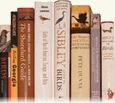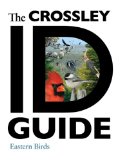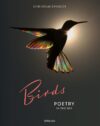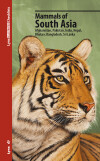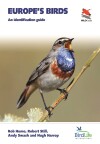Laura Erickson has posted a great overview/history of North American field guides on her blog.
All Posts
September 28, 2011
2012 Bird Books Preview from Princeton University Press
News, Book News | Comments (0)It’s always a great day when Princeton University Press releases its catalog of upcoming natural history books. Or even just offers a preview, like today. Here are some books to look forward to in the first half of next year:
-
How to Be a Better Birder
Derek Lovitch
May, 2012This unique illustrated handbook provides all the essential tools you need to become a better birder. Here Derek Lovitch offers a more effective way to go about identification—he calls it the “Whole Bird and More” approach—that will enable you to identify more birds, more quickly, more of the time. He demonstrates how to use geography, an understanding of habitats, ecology, and even the weather to enrich your birding experience and find something out of the ordinary. Lovitch shows how to track nocturnal migrants using radar, collect data for bird conservation, discover exciting rarities, develop patch lists—and much more. This is the ideal resource for intermediate and advanced birders. Whether you want to build a bigger list or simply learn more about birds, How to Be a Better Birder will take your birding skills to the next level.
-
Cotingas and Manakins
Guy M. Kirwan and Graeme Green
March, 2012Cotingas and Manakins is the definitive work on these jewels of the Neotropics, covering more than 130 species. These range from some of the rarest and most enigmatic birds in the world to some of the best studied of all tropical species. Many are breathtakingly colorful and ornate while some are plain and difficult to see. This stunning volume features 34 color plates by Eustace Barnes, who has observed many of these species in the field, as well as distribution maps and approximately 400 color photographs that cover all but a tiny handful of species. Complete with detailed species accounts describing key identification features, Cotingas and Manakins is the authoritative illustrated guide to these magnificent Neotropical birds.
-
A Field Guide to the Birds of New Zealand
Julian Fitter and Don Merton
January, 2012New Zealand is commonly described as “the land of birds.” Now, there is an easy-to-use guide for all those interested in this country’s remarkable bird population. A Field Guide to the Birds of New Zealand contains over 600 stunning photographs of the more than 350 bird species likely to be seen in this area of the world. Comprehensive and compact, the book includes full descriptions of all native species and regular visitors, distribution maps and measurements, key information on national parks, and useful information on ongoing conservation efforts in the country. Filled with handy tips for nature enthusiasts wanting to make the most of their trip, this is the only bird guide that anyone exploring this region will need.
-
Birds of India, Pakistan, Nepal, Bangladesh, Bhutan, Sri Lanka, and the Maldives: second edition
Richard Grimmett, Carol Inskipp, and Tim Inskipp
March, 2012The best field guide to the birds of the Indian subcontinent is now even better. Thoroughly revised, with 73 new plates and many others updated or repainted, the second edition of Birds of India now features all maps and text opposite the plates for quicker and easier reference. Newly identified species have been added, the text has been extensively revised, and all the maps are new. Comprehensive and definitive, this is the indispensable guide for anyone birding in this part of the world.
-
Birds of Central Asia: Kazakhstan, Turkmenistan, Uzbekistan,
Kyrgyzstan, Tajikistan, Afghanistan
Raffael Ayé, Manuel Schweizer, and Tobias Roth
March, 2012Central Asia—a vast and remote area of steppe, semi-desert, and mountains separating Europe from eastern Asia—is home to a diversity of birds. Birds of Central Asia is the first-ever field guide to the avian population for this fascinating part of the world. From ground jays, larks, and raptors, to warblers, nuthatches, and snowfinches, this comprehensive guide covers 627 species—including all residents, migrants, and vagrants—and 141 superb plates depict every species and many distinct plumages and races. The portable book contains important introductory sections on the land and its birds, and up-to-date color maps. The concise, authoritative text on facing pages highlights key identification features, such as status, voice, and habitat. Birds of Central Asia is indispensable for anyone interested in the birds of this remarkable and little-known region.
-
Birds of Aruba, Curaçao, and Bonaire
Bart de Boer, Eric Newton, and Robin Restall
March, 2012Located in the southern Caribbean off the coast of Venezuela, the islands of Aruba, Curaçao, and Bonaire are home to a colorful diversity of bird species. Birds of Aruba, Curaçao, and Bonaire is the first comprehensive field guide to the birds of the region and the ideal companion for identifying the islands’ remarkable avian population. The compact and portable book contains close to 1,000 superb color illustrations on 71 color plates and detailed descriptions of every species. Concise text on facing pages highlights key identification features, including voice, habitat, behavior, and status. This field guide is essential for all birdwatchers and wildlife enthusiasts interested in this part of the world.
-
Birds of Melanesia: Bismarcks, Solomons, Vanuatu, and New Caledonia
Guy Dutson
March, 2012Melanesia harbors an amazing range of endemic bird species and subspecies, many of which are poorly known. Birds of Melanesia is the first comprehensive field guide to all 501 species found in the Bismarck Archipelago, Bougainville, the Solomons, Vanuatu, and New Caledonia. This beautifully illustrated guide features 86 color plates that depict almost every species—including many endemic subspecies—and many of the plates are arranged by island group for easy reference. Detailed species accounts describe key identification features and distribution, as well as key features for all subspecies. Distribution bars are also given for all species except extreme vagrants.
September 27, 2011
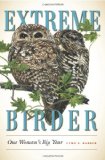
Extreme Birder: One Woman’s Big Year
Reviews, Books, Miscellaneous | Comments (0)Little late, but here are the reviews from around the internets I found last month.
- Bird Brain Genius
- Arctic Autumn: A Journey to Season’s Edge
- The Crossley ID Guide: Eastern Birds
- Avian Architecture: How Birds Design, Engineer, and Build
- The Atlas of Birds: Diversity, Behavior, and Conservation
- Advanced Bird ID Handbook: The Western Palearctic
- The Birds of New Jersey: Status and Distribution
- Birds of Hawaii, New Zealand, and the Central and West Pacific
- Wesley the Owl: The Remarkable Love Story of an Owl and His Girl
- The Urban Birder
- Hope Is the Thing With Feathers: A Personal Chronicle of Vanished Birds
- A Field Guide to the Birds of South-East Asia
- Birds of the West Indies (Princeton Illustrated Checklists)
 Until September 5, 2011, the Audubon Birds mobile app for iPhone, Android, and Palm will be on sale for $4.99 (normally $14.99).
Until September 5, 2011, the Audubon Birds mobile app for iPhone, Android, and Palm will be on sale for $4.99 (normally $14.99).
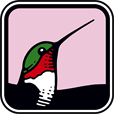 Appweavers has produced a nice app version of the Peterson field guide – Peterson Birds of North America app (a review is coming eventually). But I missed the fact that there is also a free edition – Peterson Feeder Birds of North America.
Appweavers has produced a nice app version of the Peterson field guide – Peterson Birds of North America app (a review is coming eventually). But I missed the fact that there is also a free edition – Peterson Feeder Birds of North America.
And now this free app provides even more value. Appweavers just announced:
Initially released in April of this year, Peterson Feeder Birds of North America, a comprehensive guide to 160 North American backyard birds, passed 100,000 downloads from the iTunes App Store. To celebrate, the company is extending its innovative Bird Finder service, previously available only to users of the company’s paid app, Peterson Birds of North America, to users of the free backyard birds app.
I haven’t had a chance to use Bird Finder yet, but it looks interesting. And now you can check it out for free!
Thanks to The Birdbooker Report for the heads-up.
by Richard Crossley
An amazing photographic guide that presents the birds of eastern North America in a unique and lifelike manner.
August 10, 2011
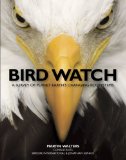
Bird Watch: A Survey of Planet Earth’s Changing Ecosystems
Reviews, Books, Miscellaneous | Comments (0)by Martin Walters
An introduction to the world’s endangered ecosystems and birds.
We have a winner in the ABA giveaway. Congrats to Eva, of The Flying Mullet, who just won a copy of The Birds of Panama: A Field Guide. Here’s hoping you enjoy your ABA membership and find the field guide helpful!
Bird book reviews that I found last month.
- Field Guide to the Birds of Macaronesia
- The View from Lazy Point: A Natural Year in an Unnatural World
- Avian Architecture: How Birds Design, Engineer, and Build
- KaHolly
- Birdfreak
- The Passionate Birder (also includes The Crossley ID Guide)
- The Crossley ID Guide: Eastern Birds
- The Birds of New Jersey: Status and Distribution
- The Atlas of Birds: Diversity, Behavior, and Conservation
- Various new books: The Joy of Birding: A Beginner’s Guide
; Backyard Birding: Using Natural Gardening to Attract Birds
; Hummingbirds and Butterflies
; Kaufman Field Guide to Advanced Birding
- Kaufman Field Guide to Advanced Birding
- The Art of Bird Finding
- Birds of Hawaii, New Zealand, and the Central and West Pacific
- The Nesting Season: Cuckoos, Cuckolds, and the Invention of Monogamy
- Bird Calls
(Children’s book)
